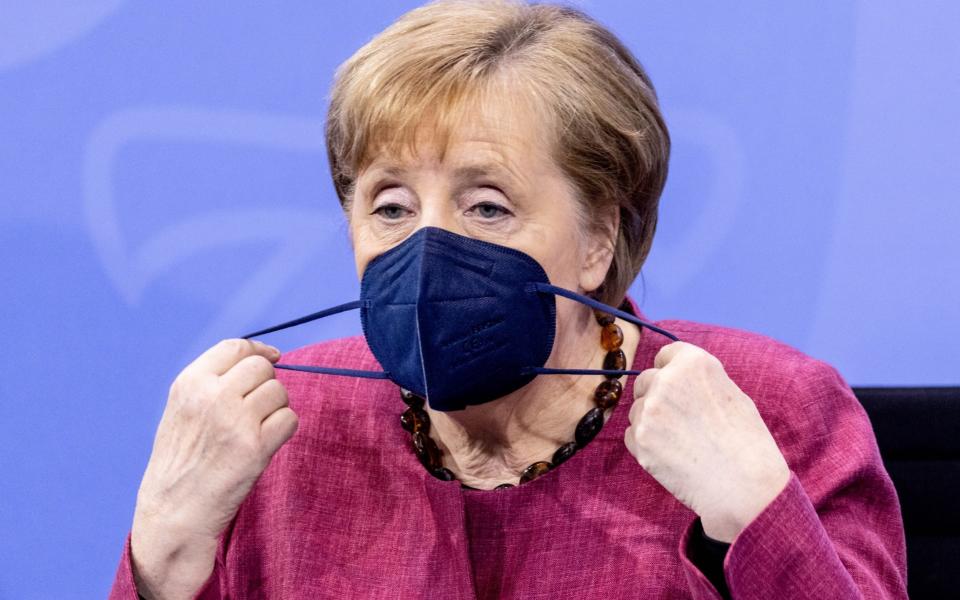Blow for Angela Merkel as chip shortage drags on German industry

Germany's crucial manufacturing industry suffered a new slowdown in April as the worldwide shortage of semiconductors hit order books and threatened to slow down the eurozone's largest economy.
It poses a threat to Angela Merkel’s hopes of bequeathing a strong election result to Armin Laschet, her successor as leader of the Christian Democratic Union (CDU), as she prepares to step down as Chancellor.
Orders dipped by 0.2pc compared with March, according to the Federal Statistical Office, failing to match the increase of 0.5pc anticipated by economists. By contrast in the previous months orders jumped by 3.9pc. It marks a sharp slowdown in the pace of the recovery in manufacturing, which is crucial to the industry-focused economy.
Katharina Koenz at Oxford Economics said the 2.6pc fall in manufacturing turnover in April boded ill for the wider economy.
“Along with weak-ish trucking data in May, this implies that industry will struggle to add to second quarter GDP growth given the supply bottlenecks,” she said.
Domestic demand was the key weakness, plunging more than 4pc, while export orders climbed by 2.7pc on the month.
Shortages of key materials pose a risk to companies’ attempts to serve customers, with semiconductors and microchips a particularly tight market across the globe. The shortage has created problems for the automotive industry, which has become dependent on a steady supply of chips to keep cars rolling off production lines.
Claus Vistesen at Pantheon Macroeconomics warned “reports that firms are now scrambling to hoard input due to supply side constraints is a fly in the ointment” as “as firms aren’t getting the goods they need, on time”.
“We already see clear evidence of a widening gap between new orders and production in motor vehicles,” he said.
Other evidence of the shortages came in slowing Chinese exports, which grew by almost 28pc in May compared with the same month of 2020, when Covid was battering demand. But this was below the rise of 32pc that analysts had anticipated, said economist Iris Pang at ING.
“The main reason for the shortfall is that all export items related to semiconductor chips have slowed. Auto processing products and parts, the biggest export item, fell 4pc year on year in terms of export value,” she said.
German industry’s difficulties come after what appeared to be a positive result for the CDU in elections in the state of Saxony-Anhalt.
Ms Merkel’s party defied opinion polls to win around 37pc of the vote in the region, beating the far-right Alternative for Germany (AfD), which received around 21pc.
The Greens, who have polled well nationally, won only 6pc in this election.
